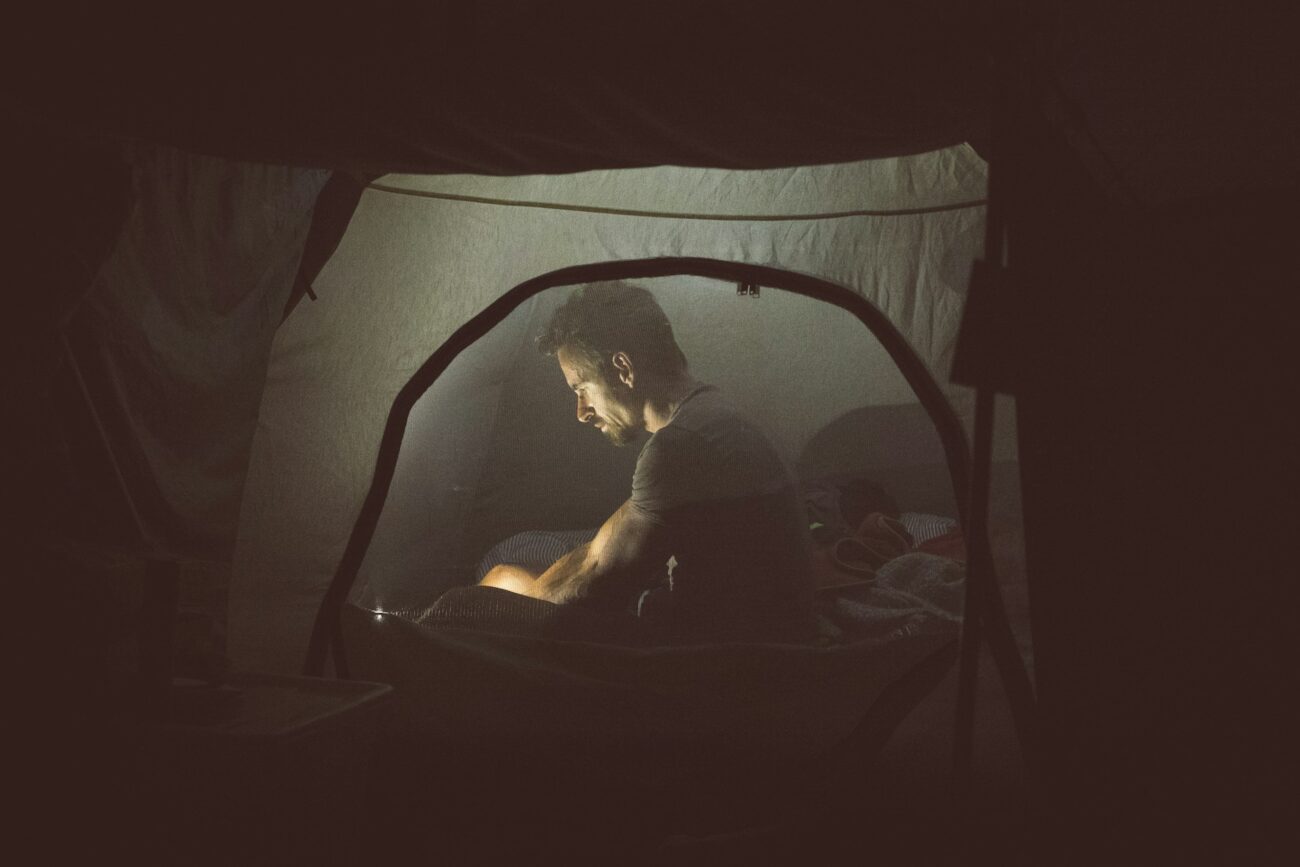Camping offers a wonderful escape from daily routines, allowing us to reconnect with nature and enjoy simpler pleasures. However, the tranquility of the great outdoors comes with its own set of challenges, particularly when it’s time to sleep. The unfamiliar sounds of wildlife, uncomfortable sleeping surfaces, temperature fluctuations, and the absence of your familiar bed can make restful sleep elusive under the stars.
This common experience shouldn’t discourage outdoor enthusiasts – with the right preparation and techniques, you can significantly improve your camping sleep quality. The following twelve solutions address the most common sleep disruptors, helping you wake refreshed and ready for your next day of adventure.
Invest in Quality Sleeping Gear
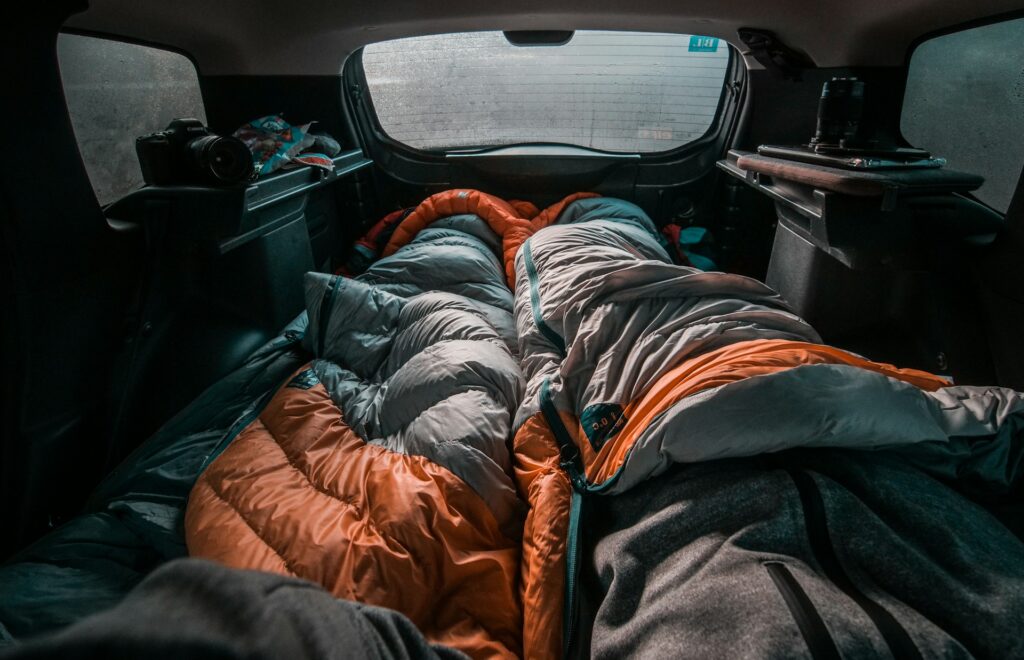
The foundation of a good night’s sleep outdoors begins with appropriate sleeping equipment. A quality sleeping pad or air mattress provides crucial cushioning and insulation from the cold ground, which can steal body heat throughout the night. Look for sleeping pads with a high R-value (insulation rating) for colder weather camping or thicker air mattresses for comfort on extended trips.
Pair this with a sleeping bag rated appropriately for the temperatures you’ll encounter – using a bag rated for temperatures 10-15 degrees lower than expected nighttime lows gives you flexibility to adjust your comfort. Complete your sleep system with a small, packable camping pillow rather than bunching up clothes, as proper neck alignment significantly impacts sleep quality in unfamiliar environments.
Choose Your Campsite Strategically
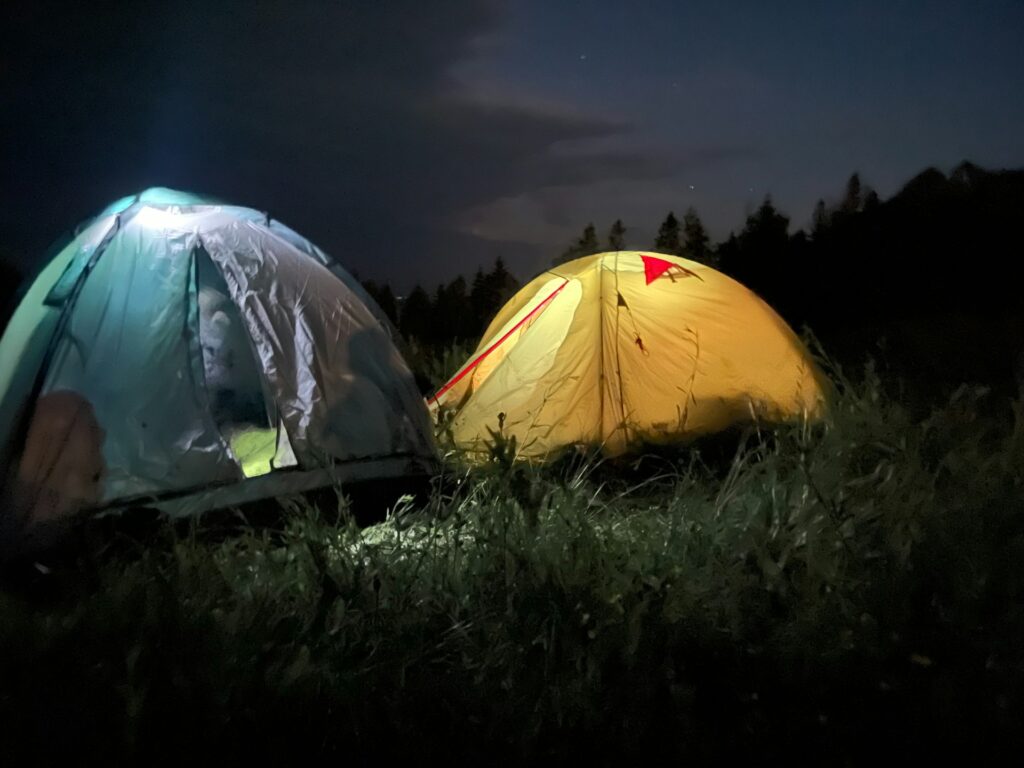
The location of your tent can dramatically affect your sleeping experience. Before setting up, scan the ground for roots, rocks, and uneven terrain that might create pressure points while you sleep. Position your tent on slightly elevated ground to prevent water pooling underneath during unexpected rain.
Consider the direction of prevailing winds and position your tent with the door facing away from them to minimize draft exposure. Additionally, evaluate surrounding trees for potential deadfall hazards during windy conditions, and maintain a respectful distance from water sources (at least 200 feet) to avoid increased humidity, condensation, and insect activity that could disturb your sleep.
Create a Pre-Sleep Routine
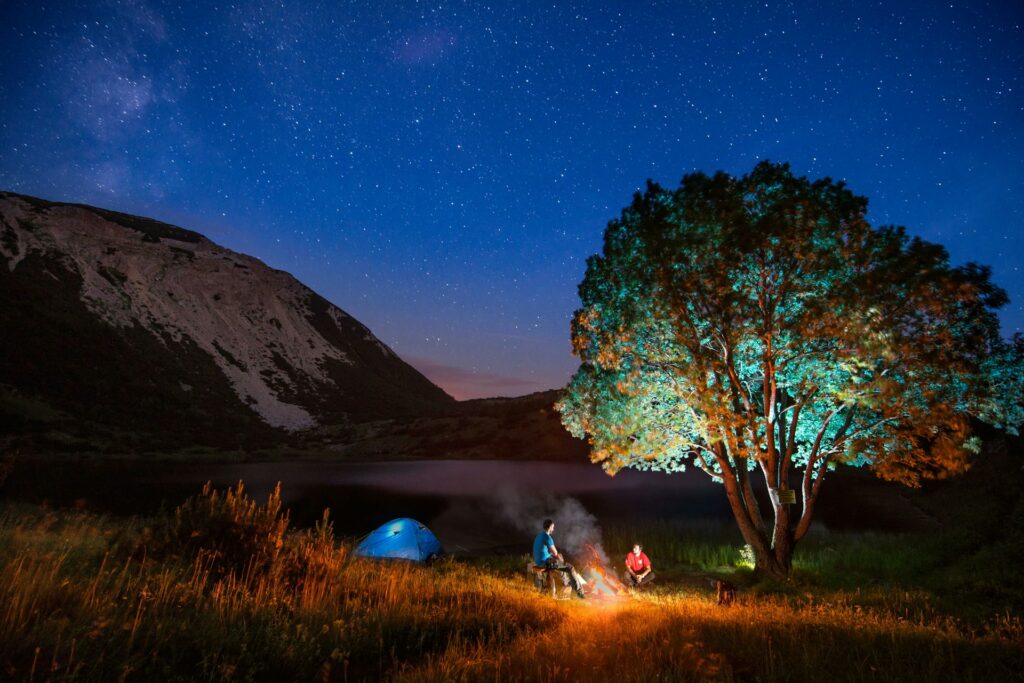
Establishing a consistent bedtime ritual signals to your body that it’s time to wind down, even in an unfamiliar setting. Begin by dimming headlamps and lanterns about an hour before bedtime to allow your body to produce natural melatonin. Engage in quiet activities like reading, journaling about your day’s adventures, or sharing stories around a low fire rather than high-energy activities.
Consider bringing herbal tea bags (chamomile or valerian root) that can be prepared with hot water for a soothing pre-sleep drink. This predictable sequence of activities creates psychological cues that help your brain transition to sleep mode despite the change in environment.
Address Temperature Regulation
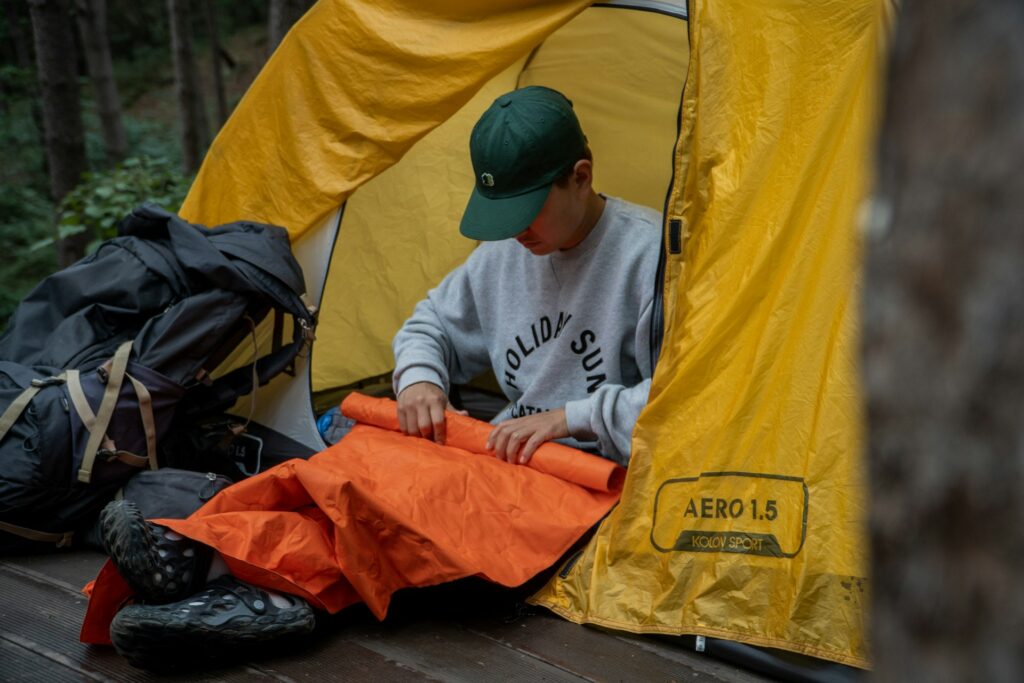
Body temperature fluctuations rank among the top sleep disruptors during camping trips. Layer your sleeping clothes strategically, wearing moisture-wicking base layers to prevent sweat accumulation that could later cause chills. Keep a dedicated set of clean, dry clothes specifically for sleeping to avoid bringing daytime moisture into your sleeping bag.
For cold weather camping, consider using a sleeping bag liner which can add 5-15 degrees of warmth while being easier to wash than your entire sleeping bag. In warmer conditions, position your tent to catch evening breezes, use the sleeping bag as a quilt, or invest in a summer-weight bag designed for ventilation while still providing the psychological comfort of being covered.
Block Disruptive Noise
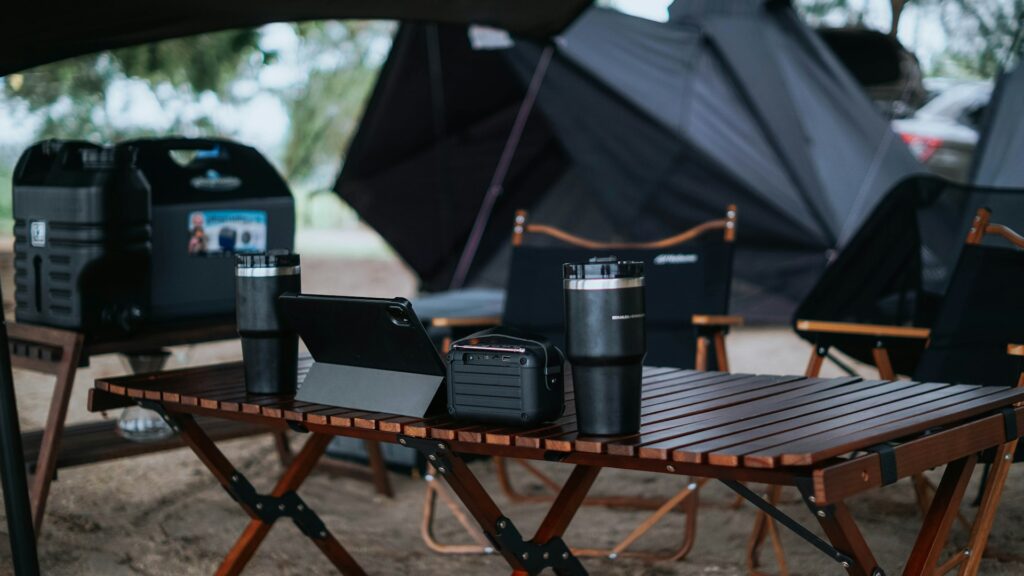
The nighttime wilderness symphony of crickets, rustling leaves, animal movements, and fellow campers can be delightful but distracting when trying to sleep. Pack foam earplugs which provide significant noise reduction while still allowing you to hear important sounds like severe weather warnings or large animals approaching camp. Alternatively, a pair of comfortable sleep headphones playing white noise, gentle nature sounds, or soft music can mask unpredictable noises with consistent audio.
Some campers find that a battery-powered white noise machine provides the dual benefit of sound masking and recreating the familiar bedroom environment. Positioning your sleeping area away from high-traffic paths in campgrounds can also minimize human-generated noise disturbances.
Manage Light Exposure
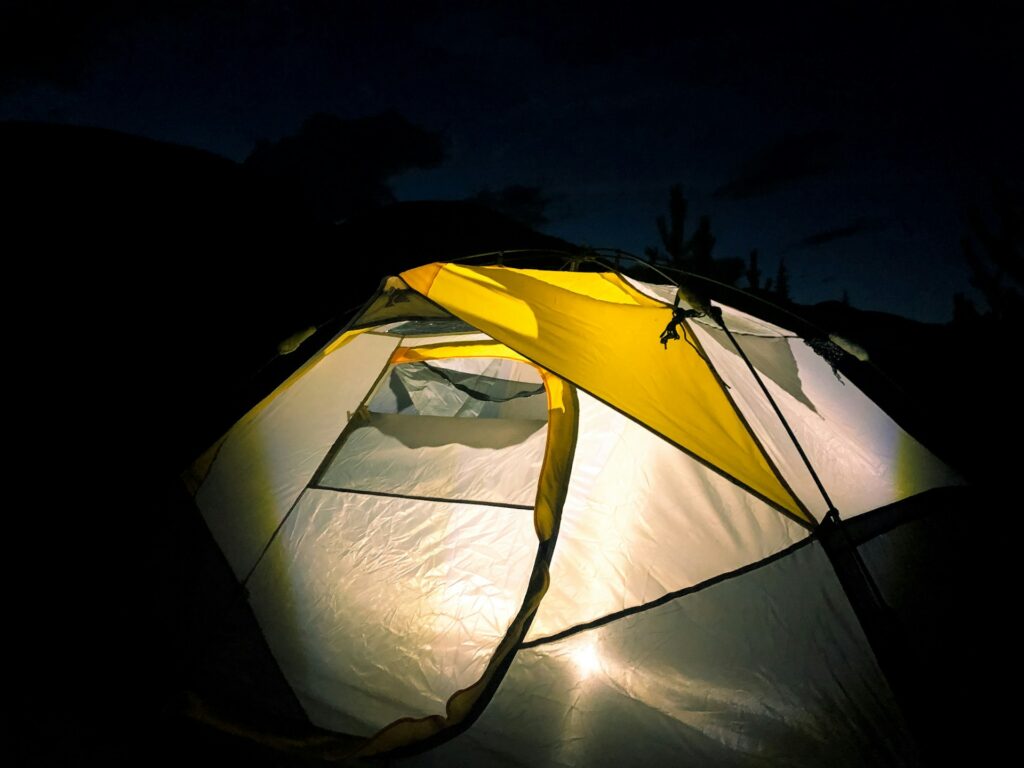
Natural light cycles affect your circadian rhythm, particularly during summer months when daylight extends into late evening and begins early morning. A quality sleep mask blocks unwanted light, whether from the early sunrise, other campers’ lanterns, or the occasionally bright full moon. Consider using a red-light headlamp around camp in the evening, as red light has minimal impact on melatonin production compared to white or blue light.
Position your tent away from campground light posts or areas where vehicle headlights might sweep across during nighttime arrivals. Some campers find draping a dark-colored bandana or thin towel over tent windows helps control light without affecting ventilation, creating a more consistent sleep environment throughout changing light conditions.
Address Physical Comfort Issues
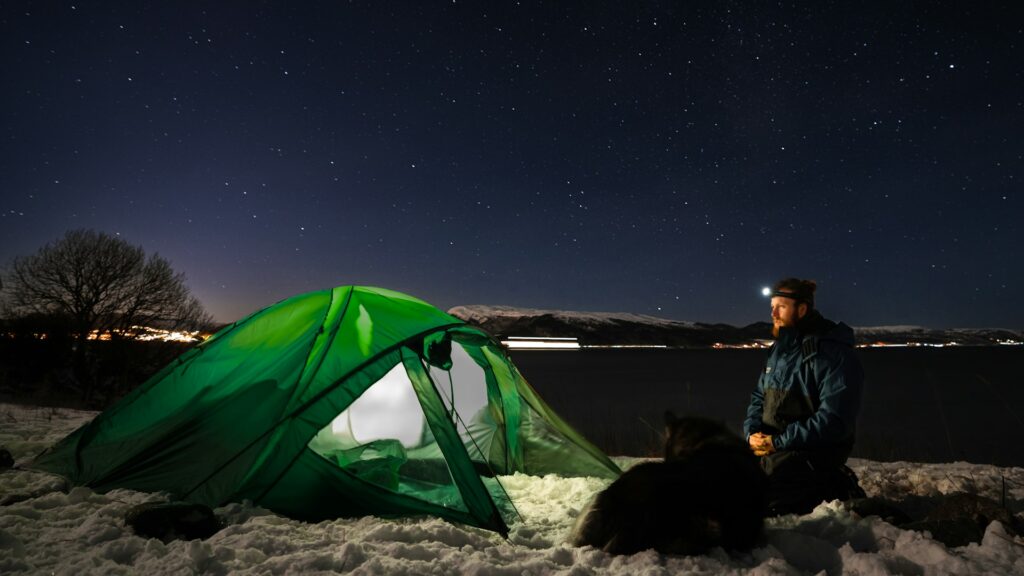
Small discomforts become magnified when trying to fall asleep outdoors, requiring proactive solutions. Prevent muscle soreness by performing gentle stretches before bedtime, focusing on areas that carried packs or worked hard during the day’s activities. Consider taking appropriate pain relievers before bed if you anticipate stiffness from the day’s hiking or other physical activities.
Position small, soft items like rolled clothing under pressure points such as knees, ankles, or between shoulder and hip when side sleeping to prevent soreness. For back sleepers, a small support under the knees can alleviate lower back pressure, while stomach sleepers might benefit from minimal or no pillow to maintain proper neck alignment on the already-elevated sleeping surface.
Stay Properly Hydrated and Fed
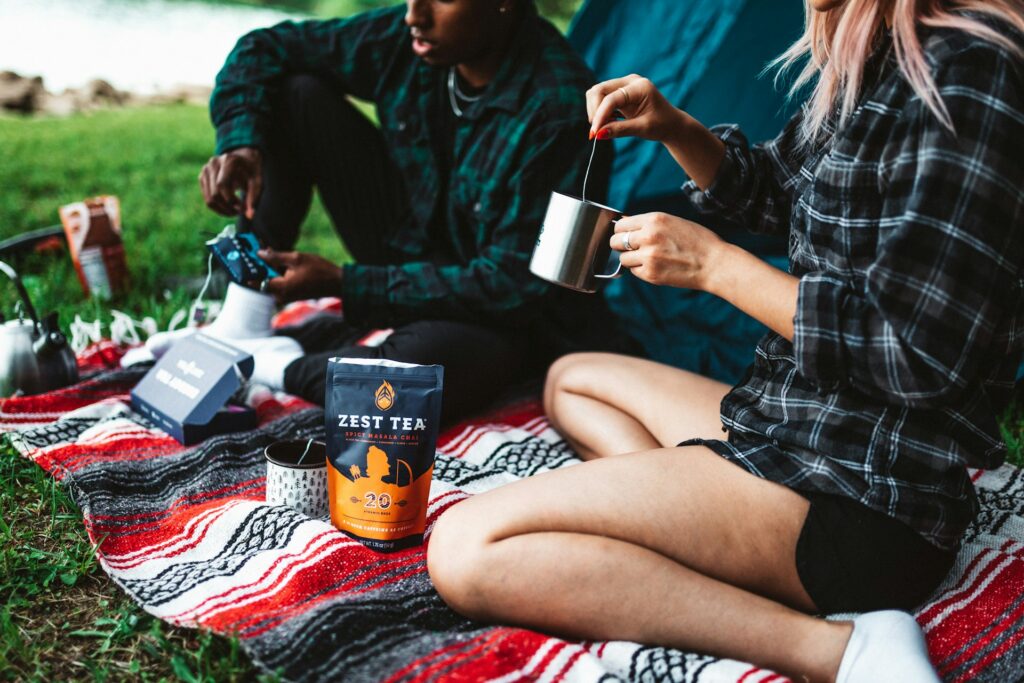
Balancing hydration and nutrition significantly impacts sleep quality during camping trips. Maintain steady hydration throughout the day rather than consuming large amounts of liquid before bed, which inevitably leads to midnight bathroom trips. Eat a moderate dinner that includes complex carbohydrates and protein to prevent hunger wakings, while avoiding excessively heavy or spicy meals that might cause digestive discomfort.
Consider keeping simple, non-perishable snacks like nuts or energy bars in an accessible pocket of your tent for middle-of-the-night hunger without needing to venture to the food storage area. Some campers find that a small thermos of warm (not hot) caffeine-free tea or milk with honey provides comfort and helps induce sleepiness when the unfamiliar environment causes restlessness.
Manage Anxiety and Unfamiliar Sounds
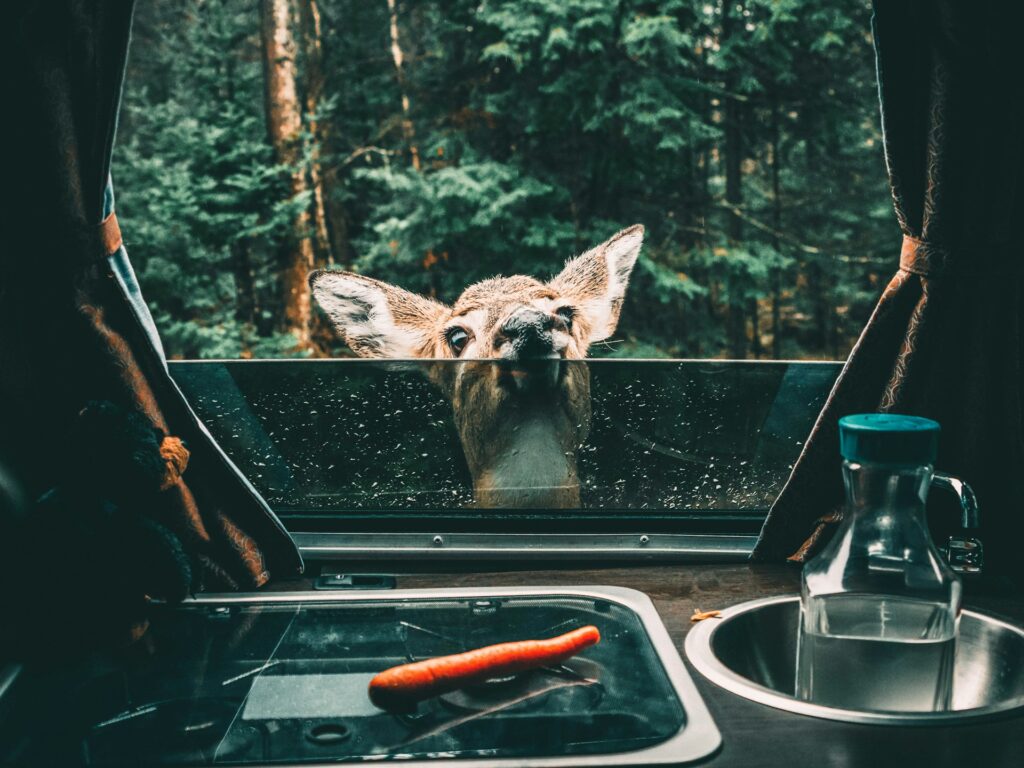
For many campers, especially those newer to outdoor sleeping, anxiety about wildlife, weather, or general safety can prevent relaxation necessary for sleep. Educate yourself about the actual wildlife in your camping area rather than imagining worst-case scenarios, as understanding normal nocturnal animal behavior often alleviates irrational fears. Implement proper food storage protocols before sleeping to eliminate legitimate wildlife concerns and prevent unnecessary middle-of-the-night worrying.
Keep essential items like headlamps, glasses, and weather-appropriate clothing within easy reach to reduce anxiety about emergency situations. Some campers find that using breathing techniques or simple meditation practices helps quiet an overactive mind that’s processing the many new sensory inputs of the outdoor environment.
Time Your Exercise Appropriately
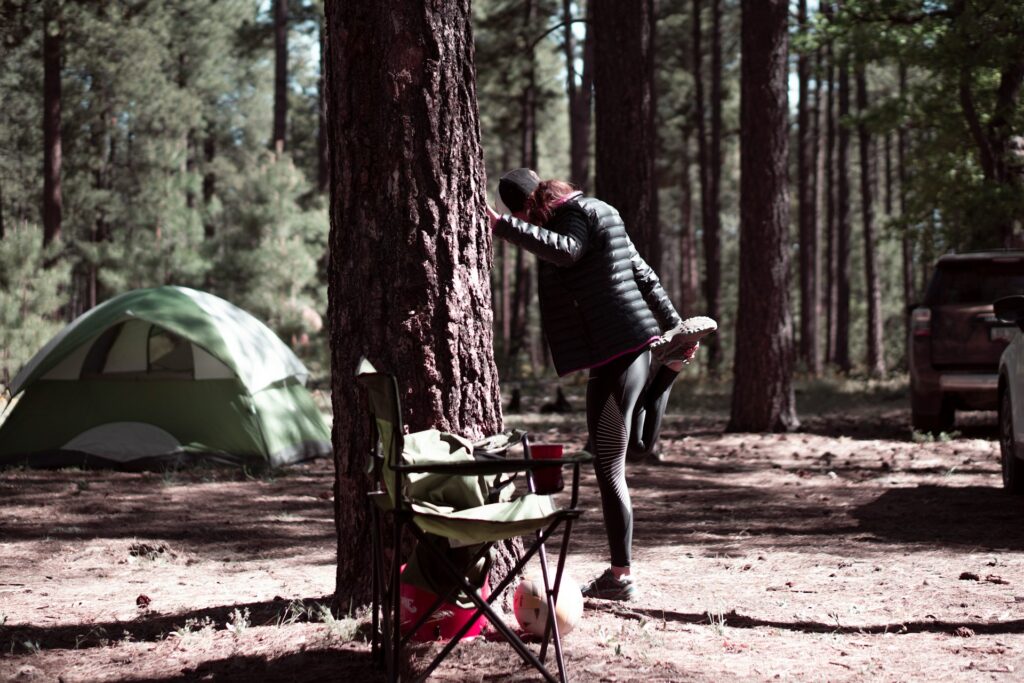
Physical activity timing affects sleep quality significantly during camping trips. Plan vigorous hiking, swimming, or exploration for earlier in the day, allowing your body several hours to cool down and transition from an active state before attempting sleep. Gentle movement like an evening stroll after dinner helps digestion while avoiding the stimulating effects of more intense exercise.
If camping at higher elevations than you’re accustomed to, moderate your activity level on the first day to prevent altitude-related sleep disturbances. For multi-day trips, consider alternating more strenuous days with lighter activity days to prevent cumulative physical exhaustion that paradoxically can make quality sleep more difficult despite feeling tired.
Bring Comfort Items from Home
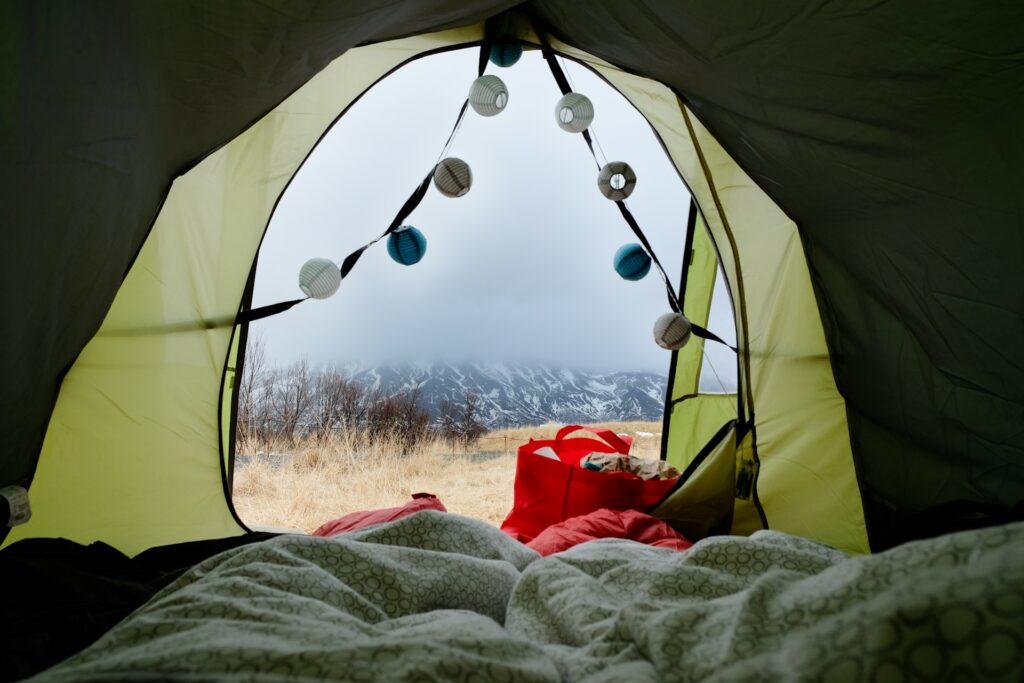
Psychological comfort significantly impacts sleep quality in unfamiliar environments. Pack a familiar pillowcase, small blanket, or even a favorite sleeping shirt that carries the scents and tactile comfort of home. These items provide subconscious sleep cues that tell your brain it’s safe to fully relax despite the new surroundings.
Some campers find that maintaining specific pre-sleep rituals from home, like reading a few pages of a book or applying a familiar-scented hand lotion, helps bridge the environmental gap. For those camping with children, bringing their usual sleep companions like small stuffed animals can prevent sleep disruptions for the entire camping party. The psychological security these items provide often outweighs any practical inconvenience of packing them.
Try Natural Sleep Aids
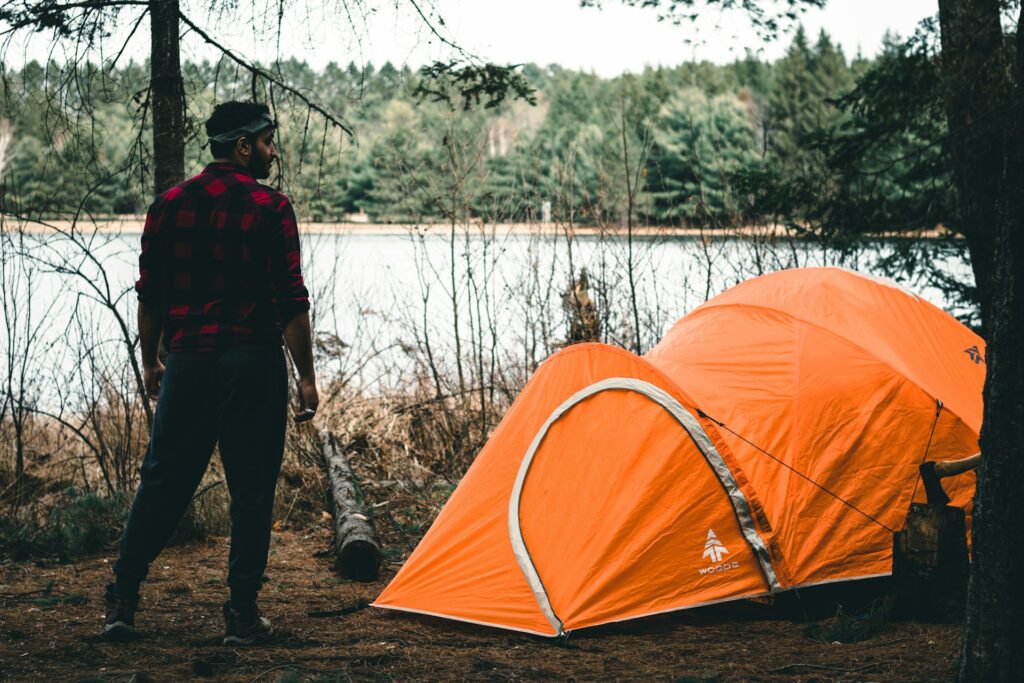
Several natural sleep-promoting substances can help overcome temporary camping insomnia without the stronger effects of prescription medications. Herbal teas containing chamomile, valerian root, or passionflower have mild sedative properties and create a calming pre-sleep ritual. Melatonin supplements in appropriate doses (typically 0.5-3mg) can help reset your sleep cycle when camping disrupts your normal patterns.
Lavender essential oil applied to pulse points or sprinkled on your pillow provides aromatherapy benefits scientifically linked to improved sleep quality and reduced anxiety. Always test any supplement or natural remedy at home before relying on it during a camping trip to ensure you don’t experience unexpected reactions or side effects that could further complicate your outdoor experience.
Conclusion
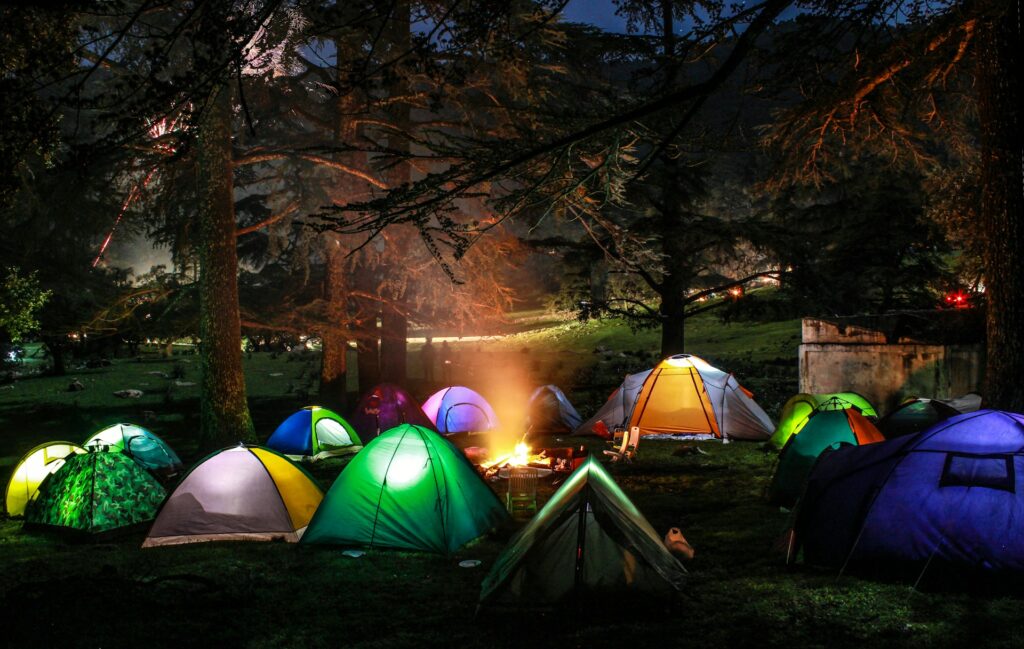
The difference between a restorative camping experience and an exhausting ordeal often comes down to sleep quality. By implementing these twelve strategies, you can address the most common barriers to restful outdoor sleep. Remember that adapting to sleeping in nature sometimes takes practice – many experienced campers report that their sleep quality improves with each successive night as their bodies adjust to the new environment.
Rather than expecting perfect sleep immediately, approach your camping sleep as part of the adventure, adjusting your techniques based on conditions and personal preferences. With thoughtful preparation and the right mindset, you can wake refreshed under the morning sun, ready to fully embrace the natural world around you.

